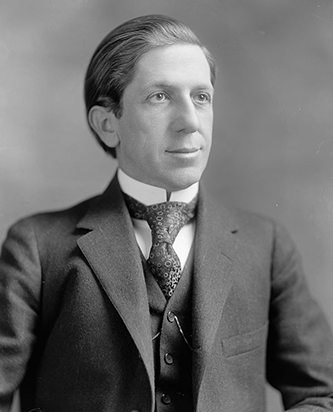Get Today in Masonic History into your Inbox. Sign up today for one of our email lists!
Need an article for your Trestleboard/Newsletter see our Use Policy
Clyde Roark Hoey is Born

Today in Masonic History Clyde Roark Hoey passes away in 1954.
Clyde Roark Hoey was an American politician.
Hoey was born on December 11th, 1877 in Shelby, North Carolina. He attended school until the age of eleven and then worked on the family farm. At the age of 16 he bought a weekly newspaper.
At he age of 20, Hoey was elected to the North Carolina House of Representatives, later he served in the North Carolina Senate. In 1919 he was elected in a special election for the United States House of Representatives serving from 1919 until 1921.
In 1937, Hoey was elected as Governor of North Carolina. The same year he pardoned Luke Lea, a Tennessee Senator who was convicted of bank fraud when the Central Bank and Trust Company of Asheville, North Carolina failed in 1930, just after the Great Depression. Lea maintained his innocence in the case all the way to the United States Supreme Court. Lea claimed it was a case of political scapegoating by Republican rivals.
During Hoey's term, the Gaines Supreme Court Decision in 1938 required all states to provide equal higher education opportunities regardless of race. It left it up to the state whether higher education was segregated or not. Although Hoey opposed integrated education, he felt it was important all people, regardless of race had equal opportunities. Hoey also set a precedent by appointing an African-American to the board of a black college.
In 1940, Hoey quietly opposed a third term for Franklin Delano Roosevelt (FDR). He was encouraged to run for the Presidency himself when it first appeared FDR wasn't running for the third term.
In 1944, Hoey ran successfully for a United States Senate seat. He served as a senator until 1954. In the Senate Hoey's politics are best described as conservative democrat. He opposed Harry S. Truman's to make the Fair Employment Practices Commission, supported Truman when he threatened striking railroad workers and supported Truman in the 1948 election over the more radical alternative Strom Thurmond. He also supported Truman's refusal to allow Congress access to records of government employees' loyalty investigations.
In 1950, Hoey opposed statehood for Hawaii and felt they needed to become an independent nation citing the United States treatment of Cuba and the Philippines. Also in 1950 he chaired a committee resulting in the Hoey Report which claimed the government's intelligence agencies "are in complete agreement that sex perverts in Government constitute security risks." In 1957 the United States Navy criticized the report in the fact it provided no evidence of it's assertions.
Hoey passed away at his desk in his Washington, D.C. office on May 12th, 1954.
Hoey was a member of Greensboro Lodge #76 in Greensboro, North Carolina.

